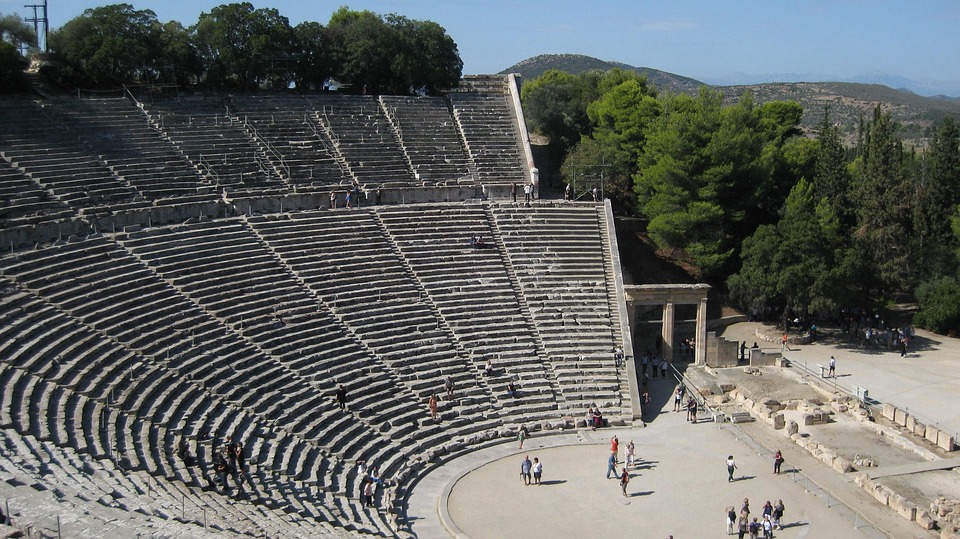
Introduction
Ancient Greece, often referred to as the cradle of Western civilization, is a civilization that has profoundly influenced the arts, politics, philosophy, and sciences. Its achievements form the foundation upon which much of today’s world is built. From its idyllic landscapes and majestic architecture to its philosophical teachings and democratic principles, Ancient Greece continues to captivate the imagination and inspire generations.
Historical Context
Spanning from around 800 BC to 146 BC, Ancient Greece was not a unified nation but a collection of city-states (poleis), each with its government, customs, and culture. Major city-states included Athens, Sparta, Corinth, and Thebes. Each had its unique character: Athens is celebrated for democracy and the arts, while Sparta is remembered for its military prowess. The rivalry and cooperation among these city-states fostered an unprecedented era of cultural and intellectual advancements.
The Birthplace of Democracy
One of Ancient Greece’s most monumental contributions to humanity is the concept of democracy, primarily developed in Athens. In the 5th century BC, Athens established a system where citizens could participate directly in decision-making. This radical approach to governance laid the groundwork for modern democratic principles. Figures like Cleisthenes and Pericles championed reforms that expanded citizen participation and public debate, fostering an environment where ideas could flourish.
Artistic Excellence
The artistic legacy of Ancient Greece is awe-inspiring. The Greeks mastered architecture, sculpture, and pottery, producing timeless works that still command respect today. The Parthenon, a temple dedicated to the goddess Athena, exemplifies the grandeur of Greek architecture with its Doric columns and intricate sculptures. In sculpture, artists like Phidias and Praxiteles advanced realistic human forms, capturing emotion and movement with incredible skill.
Greek pottery, adorned with detailed scenes from mythology and daily life, also reflects the culture’s artistic vibrancy. These artifacts offer insights into social, religious, and daily practices, making them invaluable to historians and archaeologists.
Philosophical Foundations
Ancient Greece is also renowned for its philosophers, whose inquiries laid the foundation for Western thought. Socrates, Plato, and Aristotle explored questions of existence, ethics, and knowledge, establishing schools of thought that influenced subsequent generations. Socratic dialogues introduced a method of questioning that promotes critical thinking and self-reflection. Plato’s "The Republic" examined justice and the ideal state, while Aristotle’s empirical approach to understanding the natural world paved the way for modern science.
Scientific Innovations
The scientific contributions of Ancient Greece are equally significant. Thinkers like Archimedes, Euclid, and Hippocrates made groundbreaking advancements in mathematics, physics, and medicine. Archimedes’ principles of lever and buoyancy remain foundational in physics, while Euclid’s work in geometry is still part of mathematical instruction today. Hippocrates, often called the "Father of Medicine," shifted the perception of health and disease towards a more systematic and observational approach that emphasized ethics and patient care.
Mythology and Religion
The rich tapestry of Greek mythology reveals the civilization’s spiritual ethos. Deities like Zeus, Athena, and Apollo played central roles in the lives of ancient Greeks, shaping their understanding of the world and influencing their cultural practices. Myths served as moral lessons, entertainment, and explanations for natural phenomena. Festivals such as the Olympic Games, dedicated to Zeus, underscored the significance of these deities in communal life and celebrated physical prowess and artistic achievement.
Legacy and Influence
The fall of the Western Roman Empire in the 5th century AD marked the decline of ancient Greek civilization, but its legacy endured. The Renaissance period revived interest in classical ideas, influencing art, literature, and science throughout Europe. Today, the principles of democracy, philosophical inquiry, artistic expression, and scientific reasoning developed in Ancient Greece continue to resonate globally, shaping contemporary thought.
Conclusion
Ancient Greece stands as a testament to human creativity, intellectual rigor, and the pursuit of knowledge. Its contributions to democracy, the arts, philosophy, and science are integral to the fabric of modern civilization. As we explore its majestic ruins and delve into its profound ideas, we are reminded of the enduring spirit of inquiry and innovation that defines humanity’s journey. The legacy of Ancient Greece is not just a chapter in history; it is an ongoing dialogue with the past, an inspiration for the future, and a reminder of our shared cultural heritage.










